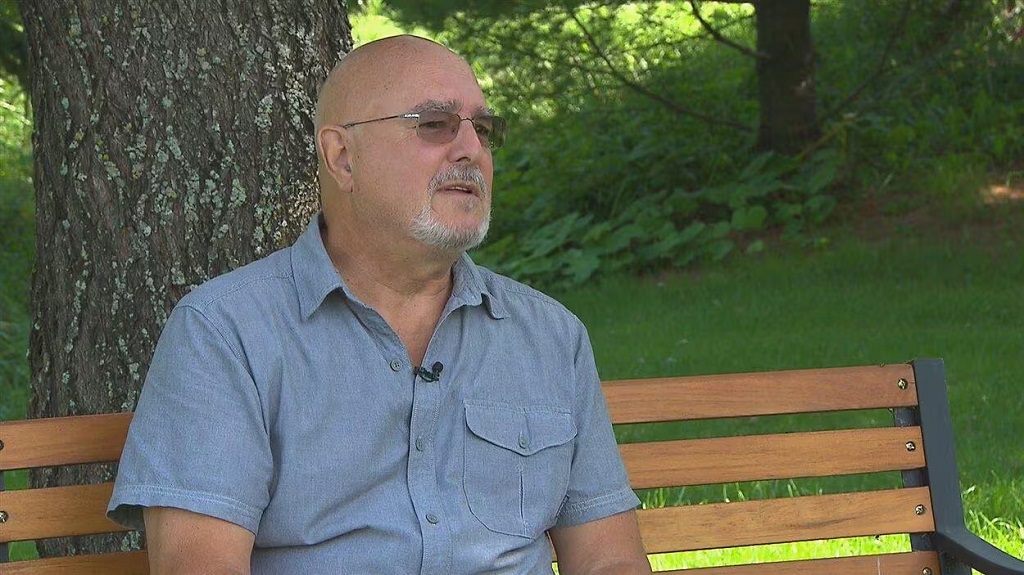Who Was Alain Chartrand Réalisateur? Wikipedia And Cause Of Death

Who Was Alain Chartrand Réalisateur? Alain Chartrand’s admirers are keen to delve into the intricacies of his personal life, encompassing aspects such as his family, career, and the circumstances surrounding his passing.
You’ve come to the correct place if you’re looking for a thorough comprehension of these specifics.
In this section, we’ll go into several aspects of Chartrand’s life, including his relationships with family, his noteworthy professional accomplishments, and the circumstances of his passing.
Prepare yourself for an enlightening voyage into the life of Alain Chartrand as we reveal the facets that characterize this significant personality in Canadian film.
Also Read: Jam Magno Arrested: Mugshot And Charges 2023
Who Was Alain Chartrand Réalisateur? Wikipedia
The Canadian director Alain Chartrand Réalisateur, born in Montreal in 1946, left a lasting legacy throughout his influential career until he died in 2023.
Alain was raised by prominent labor unionist Michel Chartrand and writer Simonne Monet-Chartrand, and his dedication to social problems would shape his career in film.
Chartrand began his career as a documentary filmmaker, earning notoriety early in the 1970s.
His landmark work, “Québec: A People’s Revolt” (1971), garnered critical and commercial acclaim for its masterful chronicling of Quebec’s turbulent October Crisis of 1970.

When Chartrand made the switch to television in the 1980s, he directed hit shows, including “Paparazzi” (1990), “Chartrand et Simonne” (2009), and “Montréal, ville ouverte” (1986) to demonstrate his flexibility.
His ability to captivate viewers in various media while keeping a sharp eye out for socially meaningful stories was evident in this turn of events.
Chartrand’s notable films include “Les orphelins de Duplessis” (1998), “Ding et Dong, le film” (1990), and “Les héritiers de la violence” (2006).
These films cemented Chartrand’s reputation as a politically charged storyteller. Alain Chartrand was a committed supporter of social justice and human rights throughout his professional life.
The fight for freedom, political repression, and social injustice were recurring themes in his films.
The many honors he was bestowed with, such as the Prix Gémeaux, the Prix Jutra, and the Prix Albert-Tessier, bear witness to the significant influence his contributions have had on Canadian culture.
Alain Chartrand Réalisateur’s 2023 death was a loss for Canadian cinema, ending an era of impactful contributions.
Alain Chartrand Cause Of Death
The renowned Canadian director Alain Chartrand passed suddenly in 2023. While the circumstances of his death are still unknown, his passing represents a significant loss in the fields of social criticism and film.
Beyond the enigma surrounding his last hours, we must concentrate on the legacy he leaves behind and the lasting influence of his work as we struggle with this emptiness.
Chartrand’s dedication to social justice went beyond the pages of his movies; it also included his active support of human rights and the elimination of social injustices in the real world.
He deftly brought attention to urgent topics, giving voiceless people a forum and subverting social norms with his cinematic storylines.
Notwithstanding the honors, including the coveted Prix Gémeaux, Prix Jutra, and Prix Albert-Tessier, Chartrand’s lasting influence on people’s sentiments counts.
His ability to convey compelling stories and his steadfast dedication to social responsibility inspired later generations’ passions for cinema, activism, and creative expression.
Although the specifics of his demise are being kept under wraps, the focus should be on honoring his outstanding accomplishments and drawing inspiration from them for constructive transformation.
Alain Chartrand’s passing closes an era, but his legacy is a beacon of hope through his impactful films and commitment to societal improvement.
Alain Chartrand Family
The rich tapestry of Alain Chartrand’s family’s heritage was delicately woven through his life.
Coming from a household known for its social engagement, he acquired a passion for equality and justice that drove his career and personal endeavors.
Alain’s life and Canadian history bear the imprint of his parents, Michel Chartrand and Simonne Monet-Chartrand, notable figures in Quebec’s labor and social justice movements.
They left a lasting devotion to human rights and a firm opposition to structural injustice.

In addition to his parents, Alain’s siblings, Dominique, Madeleine, Suzanne-G., Marie-Andrée, and Hélène, all strongly affected him, and together they created his perspective on the world.
This loving family dynamic inspired every family member to succeed in their areas, whether activism, education, or the arts.
Alain, who discovered his love for filmmaking, took courage and inspiration from this family mosaic to become a filmmaker who broke with norms and elevated the voices of the voiceless.
Apart from his siblings, Alain’s spouse, Diane Cailhier, and their offspring also had significant positions in his life and profession.
A skilled filmmaker, Diane collaborated with Alain on acclaimed projects like “Le Jardin d’Anna” and the award-winning “Une nuit à l’école.”
Their collaborative effort strengthened their relationship personally and enhanced Alain’s artistic vision.
Alain Chartrand’s children uphold the family legacy, embodying the ideals of justice and artistic expression.
Also Read: Bonke Makalala Arrested: Taxi Boss Murder And Multiple Crime Charges






